Medjool dates are widely considered the “king of dates” due to their large size, rich and sweet flavor, and unique chewy texture. They have become increasingly popular in recent years, not just for their delicious taste but also for their numerous health benefits. But where did these luscious fruits originate from, and how did they become such a sought-after delicacy? The origins of the Medjool date can be traced back to ancient Mesopotamia, where date palm trees were cultivated over 6,000 years ago. The fertile lands of the Tigris and Euphrates rivers provided the perfect environment for these trees to thrive, and the date palm quickly became an important source of food, shelter, and materials for the people of the region. The Medjool variety of dates, in particular, is believed to have originated in Morocco, where it was prized for its large size, soft texture, and rich flavor.
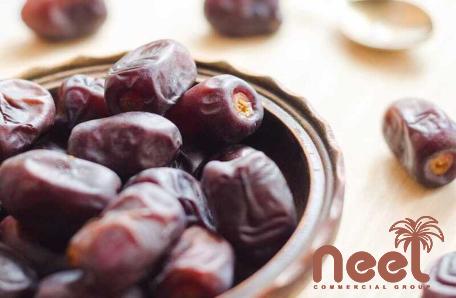
.
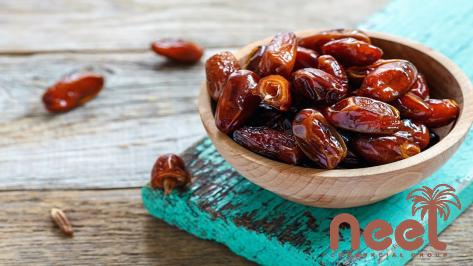 Known as the “fruit of kings,” Medjool dates were reserved for royalty and special occasions due to their exquisite taste and limited availability. Over time, the cultivation of Medjool dates spread to other regions, including North Africa, the Middle East, and eventually to the United States. In the early 20th century, the Medjool date palm was introduced to southern California, where the warm climate and fertile soil provided an ideal setting for its growth. Today, the Coachella Valley in California is one of the primary regions for Medjool date cultivation in the United States. The hot desert climate, low humidity, and ample sunshine create the perfect conditions for producing high-quality dates with a rich, caramel-like flavor. One of the key factors that contribute to the exceptional taste and texture of Medjool dates is the way they are harvested. Unlike many other varieties of dates that are left to ripen and dry on the palm tree, Medjool dates are typically harvested when they are still slightly underripe. This helps to preserve their soft, chewy consistency and ensures that they retain their natural sweetness. Medjool dates are not only delicious but also incredibly nutritious. They are a rich source of fiber, vitamins, and minerals, making them a healthy addition to any diet. Medjool dates are particularly high in potassium, which is essential for maintaining proper heart function, muscle contractions, and fluid balance in the body.
Known as the “fruit of kings,” Medjool dates were reserved for royalty and special occasions due to their exquisite taste and limited availability. Over time, the cultivation of Medjool dates spread to other regions, including North Africa, the Middle East, and eventually to the United States. In the early 20th century, the Medjool date palm was introduced to southern California, where the warm climate and fertile soil provided an ideal setting for its growth. Today, the Coachella Valley in California is one of the primary regions for Medjool date cultivation in the United States. The hot desert climate, low humidity, and ample sunshine create the perfect conditions for producing high-quality dates with a rich, caramel-like flavor. One of the key factors that contribute to the exceptional taste and texture of Medjool dates is the way they are harvested. Unlike many other varieties of dates that are left to ripen and dry on the palm tree, Medjool dates are typically harvested when they are still slightly underripe. This helps to preserve their soft, chewy consistency and ensures that they retain their natural sweetness. Medjool dates are not only delicious but also incredibly nutritious. They are a rich source of fiber, vitamins, and minerals, making them a healthy addition to any diet. Medjool dates are particularly high in potassium, which is essential for maintaining proper heart function, muscle contractions, and fluid balance in the body.
..
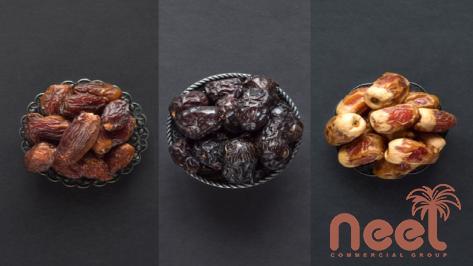 In addition to their nutritional benefits, Medjool dates are also a great natural sweetener that can be used in a variety of recipes. They can be enjoyed on their own as a quick and satisfying snack, or incorporated into smoothies, desserts, and baked goods for a touch of natural sweetness. The popularity of Medjool dates has continued to grow in recent years, as more people discover their unique flavor and health benefits. Whether eaten fresh or dried, Medjool dates offer a delicious and nutritious option for those looking to satisfy their sweet tooth while also supporting their overall health and well-being. In conclusion, the origin of the Medjool date can be traced back to ancient Mesopotamia, where date palm trees were first cultivated for their fruit. Over time, the Medjool variety emerged as a prized delicacy, known for its large size, rich flavor, and soft texture. Today, Medjool dates are cultivated in regions around the world, including the United States, where they continue to be enjoyed for their delicious taste and numerous health benefits. The cultivation of Medjool dates requires a great deal of care and attention to detail. Date palms are typically grown in arid regions with ample sunlight and well-drained soil. The process begins with the planting of date palm offshoots, which are small shoots that grow at the base of mature palm trees. These offshoots are carefully transplanted to new locations where they can grow into mature date palm trees. Date palms are unique in that they are either male or female, with only female trees producing the fruit. In order to ensure pollination and fruit production, female date palms are often planted in close proximity to male date palms. In the case of Medjool dates, special care is taken to select and cultivate trees that produce the large, sweet fruits that are characteristic of the Medjool variety. The cultivation process for Medjool dates is a labor-intensive endeavor that requires skilled workers to tend to the palm trees throughout the year.
In addition to their nutritional benefits, Medjool dates are also a great natural sweetener that can be used in a variety of recipes. They can be enjoyed on their own as a quick and satisfying snack, or incorporated into smoothies, desserts, and baked goods for a touch of natural sweetness. The popularity of Medjool dates has continued to grow in recent years, as more people discover their unique flavor and health benefits. Whether eaten fresh or dried, Medjool dates offer a delicious and nutritious option for those looking to satisfy their sweet tooth while also supporting their overall health and well-being. In conclusion, the origin of the Medjool date can be traced back to ancient Mesopotamia, where date palm trees were first cultivated for their fruit. Over time, the Medjool variety emerged as a prized delicacy, known for its large size, rich flavor, and soft texture. Today, Medjool dates are cultivated in regions around the world, including the United States, where they continue to be enjoyed for their delicious taste and numerous health benefits. The cultivation of Medjool dates requires a great deal of care and attention to detail. Date palms are typically grown in arid regions with ample sunlight and well-drained soil. The process begins with the planting of date palm offshoots, which are small shoots that grow at the base of mature palm trees. These offshoots are carefully transplanted to new locations where they can grow into mature date palm trees. Date palms are unique in that they are either male or female, with only female trees producing the fruit. In order to ensure pollination and fruit production, female date palms are often planted in close proximity to male date palms. In the case of Medjool dates, special care is taken to select and cultivate trees that produce the large, sweet fruits that are characteristic of the Medjool variety. The cultivation process for Medjool dates is a labor-intensive endeavor that requires skilled workers to tend to the palm trees throughout the year.
…
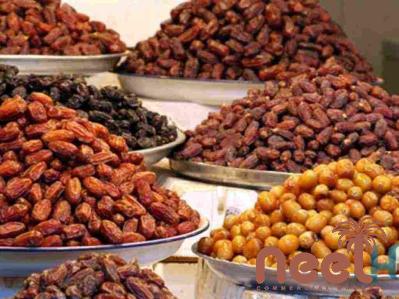 Date palms are pruned regularly to remove dead fronds and promote healthy growth, while irrigation systems are often used to provide the trees with water in the arid desert climate. Harvesting Medjool dates is also a meticulous process that requires precision and careful timing. Dates are typically harvested by hand to avoid damaging the fruit, with workers climbing up the tall palm trees to reach the clusters of dates high above. Once harvested, the dates are carefully inspected for quality and sorted based on size and ripeness. After harvesting, the dates are typically cleaned, sorted, and packaged for distribution. Medjool dates are often packaged in small boxes or containers to preserve their freshness and protect them from damage during transport. They are then shipped to markets and grocery stores around the world, where they are sold to consumers eager to enjoy their delicious flavor and health benefits. In addition to being enjoyed on their own, Medjool dates can be used in a variety of culinary applications. They are commonly added to salads, oatmeal, and yogurt for a natural sweetener, or blended into smoothies for added texture and flavor. Medjool dates can also be incorporated into baked goods such as cookies, bars, and energy bites for a nutritious and delicious treat. In recent years, Medjool dates have gained popularity as a healthier alternative to refined sugar and artificial sweeteners. Their natural sweetness, combined with their rich flavor and chewy texture, makes them a versatile ingredient that can be used in a wide range of recipes. Whether you’re looking for a quick snack, a nutritious addition to your meals, or a delicious treat to satisfy your sweet tooth, Medjool dates are a delicious and wholesome option that can be enjoyed in many ways. In conclusion, Medjool dates have a rich history that dates back thousands of years to ancient Mesopotamia. Today, they are cultivated in regions around the world, where they continue to be prized for their delicious taste, unique texture, and numerous health benefits. Whether eaten fresh or dried, Medjool dates offer a natural and nutritious option for those looking to indulge in a sweet treat while also supporting their overall well-being.
Date palms are pruned regularly to remove dead fronds and promote healthy growth, while irrigation systems are often used to provide the trees with water in the arid desert climate. Harvesting Medjool dates is also a meticulous process that requires precision and careful timing. Dates are typically harvested by hand to avoid damaging the fruit, with workers climbing up the tall palm trees to reach the clusters of dates high above. Once harvested, the dates are carefully inspected for quality and sorted based on size and ripeness. After harvesting, the dates are typically cleaned, sorted, and packaged for distribution. Medjool dates are often packaged in small boxes or containers to preserve their freshness and protect them from damage during transport. They are then shipped to markets and grocery stores around the world, where they are sold to consumers eager to enjoy their delicious flavor and health benefits. In addition to being enjoyed on their own, Medjool dates can be used in a variety of culinary applications. They are commonly added to salads, oatmeal, and yogurt for a natural sweetener, or blended into smoothies for added texture and flavor. Medjool dates can also be incorporated into baked goods such as cookies, bars, and energy bites for a nutritious and delicious treat. In recent years, Medjool dates have gained popularity as a healthier alternative to refined sugar and artificial sweeteners. Their natural sweetness, combined with their rich flavor and chewy texture, makes them a versatile ingredient that can be used in a wide range of recipes. Whether you’re looking for a quick snack, a nutritious addition to your meals, or a delicious treat to satisfy your sweet tooth, Medjool dates are a delicious and wholesome option that can be enjoyed in many ways. In conclusion, Medjool dates have a rich history that dates back thousands of years to ancient Mesopotamia. Today, they are cultivated in regions around the world, where they continue to be prized for their delicious taste, unique texture, and numerous health benefits. Whether eaten fresh or dried, Medjool dates offer a natural and nutritious option for those looking to indulge in a sweet treat while also supporting their overall well-being.
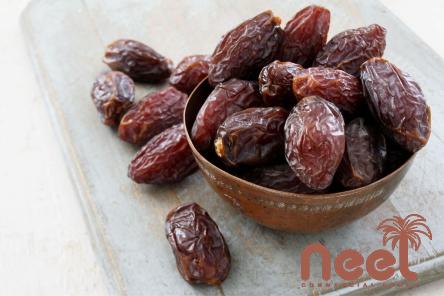
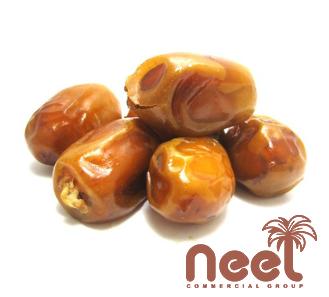
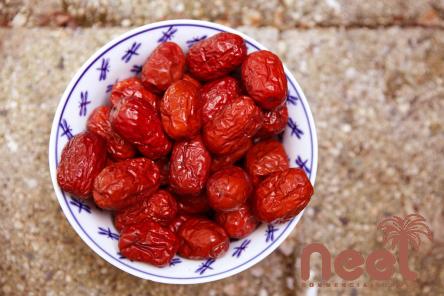
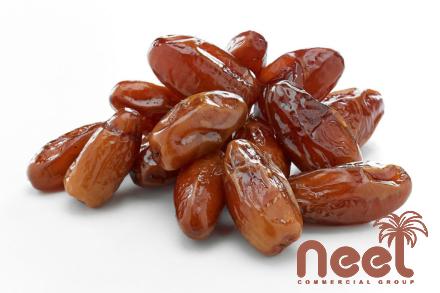
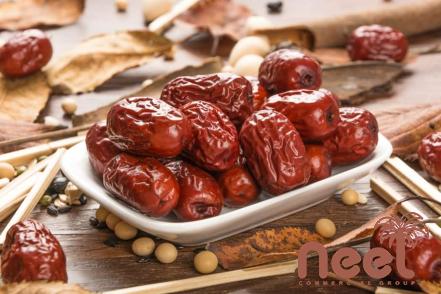
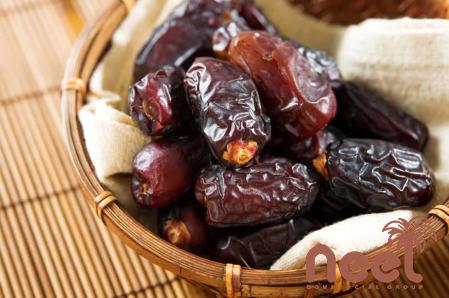
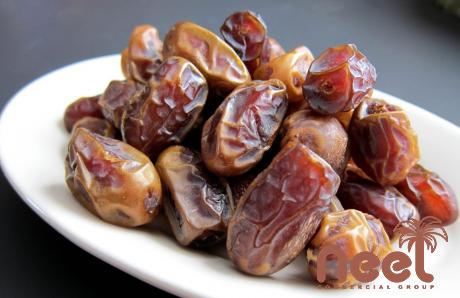
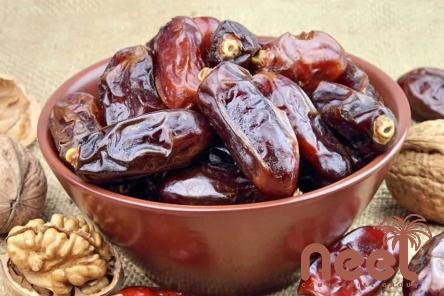
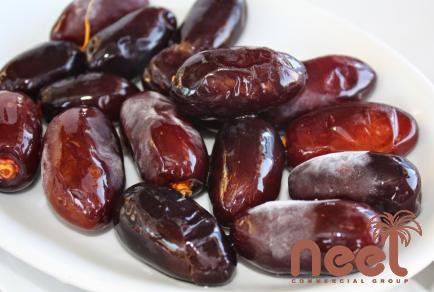
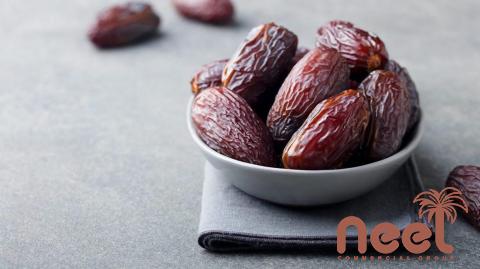
Your comment submitted.